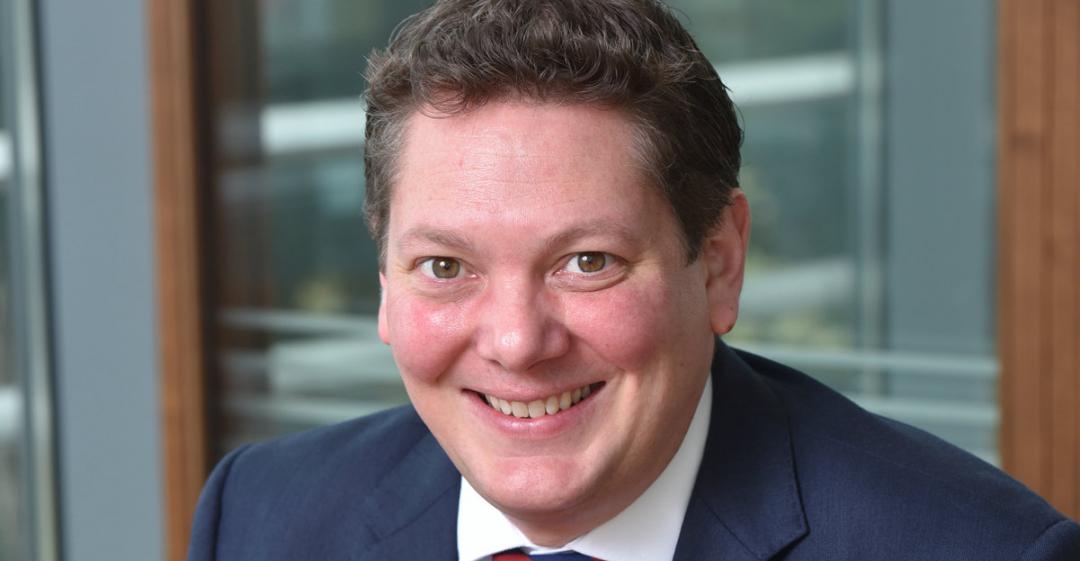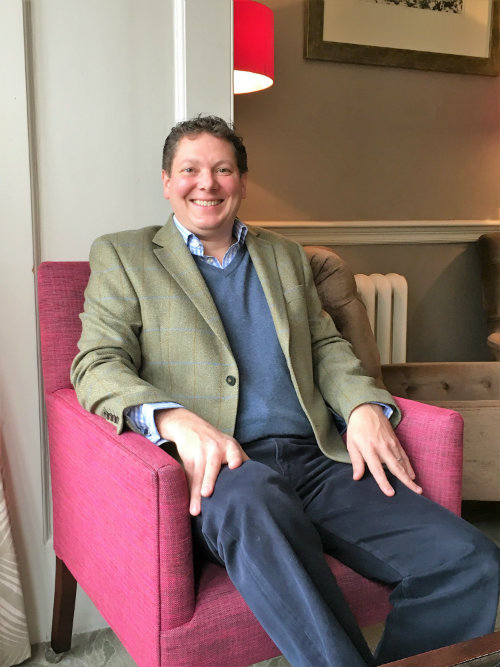“I didn't want to waste years simply filling a seat.”

What work were you doing previously?
I was Managing Director of a property management firm for 12 years.
I managed a varied team of about 80 people across numerous locations. Ultimately, I orchestrated the firm's sale to a venture capital firm.
What are you doing now?
I'm a qualified financial planner and Chartered Tax Adviser running my own wealth management practice.
I set the practice up after having graduated from the St. James's Place Academy 18 months ago.
How did you feel about your work before you decided to make a change?
I loved my role, but the property service industry was going through enormous change with disruption from online firms and consolidation through acquisition by large national firms.
In order to maintain a market-leading position regionally, the business would have had to have been reshaped through significant investment; this wasn't forthcoming from the existing owners.
I felt that I'd hit a bit of a wall; whilst the business was lucrative, it became clear that my personal opportunities for development and progression were limited. The issue was that the skill set that I seemed to have developed in this role and my previous roles with KPMG and Arthur Andersen was hard to fit into another obvious job that you might find on job websites.
Why did you change?
In the end, the prompt for change was an approach by a venture capital firm to buy the business.
This was absolutely the right decision for the existing owners and for the business. If I'd stayed with the firm my role would have be diluted to a point that I wouldn't have felt comfortable with the value that I could add; therefore, a change became the only option.
I didn't want to waste years simply filling a seat.
When was the moment you decided to make the change?
The moment I'd completed the sale of the business, I resigned and became unemployed without a plan!
It was a scary step, but I believe strongly that in life you have to make big choices and take big steps into the dark to really discover what's out there.
Are you happy with the change?
Running my own practice and being the true master of my own income is very different to receiving a regular monthly pay packet.
18 months in, the rewards have been some super months and some low months. However, I've already built a good client foundation and the prospects for the future look very exciting.
What do you miss and what don't you miss?
I miss working as part of a big team.
As the principal of my own practice, I'm in a team of just two at the moment; that can be a lonely place.
On the flip side, I don't miss the bureaucracy and issues that went with managing a large team, and moreover I don't miss the vulnerability I felt as a small player in an industry dominated by few.
How did you go about making the shift? And how specifically did you choose your new career?
Day one of unemployment was strange.
The next couple of weeks were dominated by a degree of procrastination, a holiday, and some confusion as to where to look next.
Through sheer fear, I started to look at opportunities back in the property sector, but having scoured websites and recruitment agencies I soon reminded myself why I'd taken the decision that I had. Going backwards was not an option.
With the field now wide open, the job market looked very daunting. There were endless roles, all of which seemed to require years of specific experience and bountiful qualifications. The whole landscape just looked like an overhyped sales pitch of the sort I was trying to get away from.
I attended one interview for a senior management role within a law firm which felt a lot like my old role but in a new sector. The interview went well, but something was niggling me – something about simply being part of a process and not really being able to add the value I so wanted to provide.
Fortunately, the law firm were extremely slow in moving their process forward; in the meantime, I had lunch with my father-in-law, a partner in a medium-sized accountancy firm, who suggested that, with my chartered background and experience working with 'real people', I should consider Financial Services.
He felt strongly that the technical framework of the industry, aligned with the requirement for excellent interpersonal skills, would suit me perfectly. He suggested that I approach large firms in the sector to look for a way in. Taking on board his advice, and with an appetite to create something myself, I scoured the internet for opportunities that might fit.
Initially, I felt deflated. I was finding roles that, once again, required experience, etc. Then, I stumbled across the St. James's Place Academy and simply completed an online enquiry form.
The enquiry form led to a phone conversation, three interviews in the Midlands, a business plan and a final interview panel in Piccadilly. The process was very much geared around developing a plan together and ensuring that I was ready to build my own practice. It was a deal along the lines of: "We'll train you and provide you with the tools, and you take all that you can and build your own business".
When I was invited to join the Academy at the end of my panel interview in London, there wasn't really a decision to make – I was already on the journey.
What didn't go well? What 'wrong turns' did you take?
I think I was one of the lucky ones.
I did two thirds of my exams in the couple of months that I had free before starting my initial six months of training, which put me in good stead. The learning curve is steep; I just had to keep my mind open and put the work in.
How did you handle your finances to make your change possible?
I had some money arising from the sale and exit from my previous role, but with three children that took a bruising.
Fortunately, it saw me through the initial six months of the Academy process; after that I started earning, which slowed the rate of attrition of our savings. We aren't yet back to our previous income levels yet, but quarter on quarter we are getting closer!
What was the most difficult thing about changing?
For me, the decision to change was made a little easier by outside factors, but far and away the biggest fear was money.
In our current socioeconomic environment, it seems that money defines so much of what we do, which in turn, wrongly, can partly define who we are. The thought of not having sufficient money to maintain a lifestyle, or even pay the mortgage, is very scary. The devil on my shoulder kept reminding me, “Better the devil you know...”.
What help did you get? 
Obviously, St. James's Place provides the Academy classroom learning for the first six months after joining. Thereafter, the support is there as you need it.
As a Partner, you are assigned a development manager. My manager worked very hard and was extremely supportive in keeping me going at times when I felt like the wall was too high to climb.
Equally, St. James's Place is a large organisation; I've worked hard to forge relationships with people who I feel can really help me develop. These relationship have been invaluable to date.
What resources would you recommend to others?
There are two things that anyone thinking about joining St. James's Place should do.
The first is to scour the website, particularly the Academy section. The second is to try to meet as many Partners of the firm as you can. These can be ex-Academy Partners or longer-standing Partners.
There's simply no better insight into the role than talking to people who are doing it or have done it.
What have you learnt in the process?
I've learnt a lot about myself and my resilience.
There is no easy way, and there are dark days, but if you 'just keep running' and take all the help that you can then the rewards will come in whatever form you want.
What would you advise others to do in the same situation?
Speak to as many people as possible and focus on what you really want from your career, whether that's freedom, money, a technical challenge or anything else.
Make sure that your aspirations accord with the opportunities that those doing the job talk about. If they do, then jump!
Don't expect it to feel easy or natural, but if you've done your homework and are prepared to chase your goals, then you'll succeed. As Churchill said, “Never, never, never give up.”
For more information about St. James's Place Academy, visit www.sjpacademy.co.uk.
Also, find out more about St. James's Place in our Retraining Directory.
What lessons could you take from James's story to use in your own career change? Let us know in the comments below.



